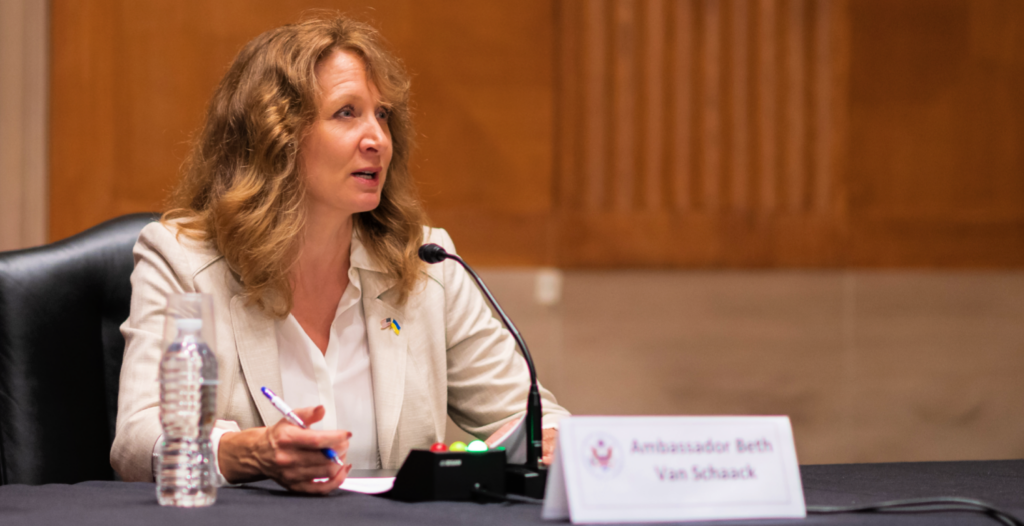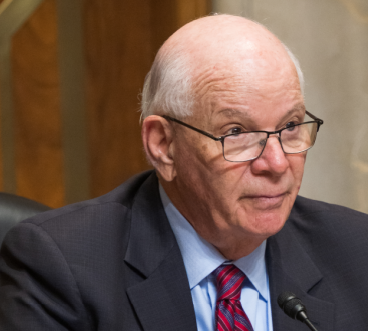Mr. Speaker, over the July Fourth recess, I had the privilege of participating in the U.S. Delegation to the OSCE Parliamentary Assembly’s annual meeting held in Paris, where I introduced a resolution on the need for the OSCE participating States–all of our States–to intensify our efforts to combat torture , police abuse, and racial profiling. This resolution, adopted and included the Assembly’s final Declaration, also calls for greater protection for non-governmental organizations, medical personnel, and others who treat the victims of torture and report on their human rights violations. The resolution also condemns the insidious practice of racial profiling, which has the effect of leaving minorities more vulnerable to police abuse. Finally, my resolution calls for the OSCE participating States to adopt, in law and in practice, a complete ban on incommunicado detention.
Tragically, recent news reports only underscore how urgent the problem of police abuse is. I would like to survey a few of the reports received by the Helsinki Commission in recent weeks. First, on July 7 in Slovakia, the body of Karol Sendrei, a 51-year-old Romani father, was returned to his family. The convoluted account of his death has included mutual recriminations among police officers and, so far, has led to the resignation of the mayor of Magnezitovce and indictments against three police officers. While much remains to be sorted out, this much is clear: On July 5, Mr. Sendrei was taken into police custody. The next day, he died of injuries, including shock caused by a torn liver, cranial and pericardial bleeding, and broken jaw, sternum, and ribs. According to reports, Mr. Sendrei had been chained to a radiator and beaten over for the last twelve hours of his life. The deaths in police custody of Lubomir Sarissky in 1999 and now Mr. Sendrei, persistent reports of police abuse in villages like Hermanovce, and the reluctance of the police and judicial system to respond seriously to racially motivated crimes have all eroded trust in law enforcement in Slovakia.
As Americans know from first-hand experience, when the public loses that trust, society as a whole pays dearly. I welcome the concern for the Sendrei case reflected in the statements of Prime Minister Dzurinda, whom I had the chance to meet at the end of May, and others in his cabinet. But statements alone will not restore confidence in the police among Slovakia’s Romani community. Those who are responsible for this death must be held fully accountable before the law. Although it has received far less press attention, in Hungary, a Romani man was also shot and killed on June 30 by an off-duty police officer in Budapest; one other person was injured in that shooting. While the police officer in that case has been arrested, too often reports of police misconduct in Hungary are ignored or have been countered with a slap on the wrist.
I remain particularly alarmed by the persistent reports of police brutality in Hajduhadhaz and police reprisals against those who have reported their abuse to the Helsinki Commission. In one case, a teenager in Hajduhadhaz who had reported being abused by the police was detained by the police again–after his case had been brought to the attention of the Helsinki Commission, and after Helsinki Commission staff had raised it with the Hungarian Ambassador. In an apparent attempt to intimidate this boy, the police claimed to have a “John Doe” criminal indictment for “unknown persons” for damaging the reputation of Hungary abroad. These are outrageous tactics from the communist-era that should be ended. I urge Hungarian Government officials to look more closely at this problem and take greater efforts to combat police abuse. I understand an investigation has begun into possible torture by a riverbank patrol in Tiszabura, following reports that police in that unit had forced a 14-year-old Romani boy into the ice-cold waters of the Tisza River. There are now reports that this unit may have victimized other people as well. I am hopeful this investigation will be transparent and credible and that those who have committed abuses will be held fully accountable.
In the Czech Republic, lack of confidence in law enforcement agents has recently led some Roma to seek to form their own self-defense units. Frankly, this is not surprising. Roma in the Czech Republic continue to be the target of violent, racially motived crime: On April 25, a group of Roma was attacked by German and Czech skinheads in Novy Bor. On June 30, 4 skinheads attacked a group of Roma in Ostrava; one of the victims of that attack was repeatedly stabbed, leaving his life in jeopardy. On July 16, three men shouting Nazi slogans attacked a Romani family in their home in western Bohemia. On July 21, a Romani man was murdered in Svitavy by a man who had previously committed attacks against Roma, only to face a slap on the wrist in the courts. These cases follow a decade in which racially motivated attacks against Roma in the Czech Republic have largely been tolerated by the police. Indeed, in the case of the murder of Milan Lacko, a police officer was involved. More to the point, he ran over Milan Lacko’s body with his police car, after skinheads beat him and left him in the road.
I am not, however, without hope for the Czech Republic. Jan Jarab, the Czech Government’s Human Rights Commissioner, has spoken openly and courageously of the human rights problems in his country. For example, the Czech News Agency recently reported that Jarob had said that “the Czech legal system deals `benevolently’ with attacks committed by right-wing extremists, `[f]rom police investigators, who do not want to investigate such cases as racial crimes, to state attorneys and judges, who pass the lowest possible sentences.’” I hope Czech political leaders–from every party and every walk of life–will support Jan Jarab’s efforts to address the problems he so rightly identified.
Clearly, problems of police abuse rarely if ever go away on their own. On the contrary, I believe that, unattended, those who engage in abusive practices only become more brazen and shameless. When two police officers in Romania were accused of beating to death a suspect in Cugir in early July, was it really a shock? In that case, the two officers had a history of using violent methods to interrogate detainees–but there appears to have been no real effort to hold them accountable for their atrocities. I am especially concerned by reports from Amnesty International that children are among the possible victims of police abuse and torture in Romania. On March 14, 14-year-old Vasile Danut was detained by police in Vladesti and beaten severely by police. On April 5, 15-year-old loana Silaghi was reportedly attacked by a police officer in Oradea. Witnesses in the case have reportedly also been intimidated by the police. In both cases, the injuries of the children were documented by medical authorities. I urge the Romanian authorities to conduct impartial investigations into each of these cases and to hold fully accountable those who may be found guilty of violating the law.
Mr. Speaker, as is well-known to many Members, torture and police abuse is a particularly widespread problem in the Republic of Turkey. I have been encouraged by the willingness of some public leaders, such as parliamentarian Emre Kocaoglu, to acknowledge the breadth and depth of the problem. Acknowledging the existence of torture must surely be part of any effort to eradicate this abuse in Turkey. I was therefore deeply disappointed by reports that 18 women, who at a conference last year publicly described the rape and other forms of torture meted out by police, are now facing charges
Finally, Mr. Speaker, I would like to draw attention to the case of Abner Louima in New York, whose case has come to light again in recent weeks. In 1997, Abner Louima was brutally and horrifically tortured by police officials; he will suffer permanent injuries for the rest of his life because of the damage inflicted in a single evening. Eventually, New York City police officer Justin Volpe pleaded guilty of the crimes. Another officer was also found guilty of participating in the assault and four other officers were convicted of lying to authorities about what happened. On July 12, Abner Louima settled the civil suit he had brought against New York City and its police union. There has been no shortage of ink to describe the $7.125 million that New York City will pay to Mr. Louima and the unprecedented settlement by the police union, which agreed to pay an additional $1.625 million. What is perhaps most remarkable in this case is that Mr. Louima had reached agreement on the financial terms of this settlement months ago. He spent the last 8 months of his settlement negotiations seeking changes in the procedures followed when allegations of police abuse are made.
As the Louima case illustrated, there is no OSCE participating State, even one with long democratic traditions and many safeguards in place, that is completely free from police abuse. Of course, I certainly don’t want to leave the impression that the problems of all OSCE countries are more or less alike–they are not. The magnitude of the use of torture in Turkey and the use of torture as a means of political repression in Uzbekistan unfortunately distinguish those countries from others. But every OSCE participating State has an obligation to prevent and punish torture and other forms of police abuse and I believe every OSCE country should do more.










